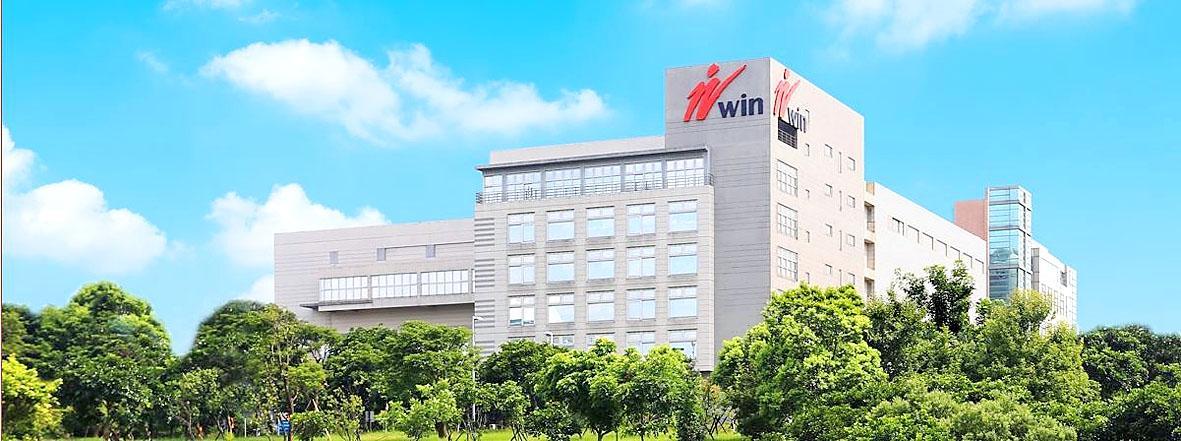Win Semiconductors Corp (穩懋半導體), the world’s largest pure-play gallium arsenide foundry, on Friday said its board of directors had approved a plan to invest NT$10 billion (US$358.3 million) to build a fab at the Southern Taiwan Science Park’s (南部科學工業園) branch campus in Kaohsiung’s Lujhu District (路竹) over the next three years.
“To meet the needs of long-term operation and growth, the company planned to build the plant in Southern Taiwan Science Park located in Kaohsiung,” the Linkou District (林口), New Taipei City-based firm wrote in a regulatory filing.
“Excluding the payment for the construction of the first phase of the plant approved by the company’s board of directors on Dec. 25 in 2020, NT$10 billion is expected to be invested,” the company wrote. “The investment will be divided into several stages and [start] from 2021.”

Photo: Screen grab from the Win Semiconductors Corp Web site
Win Semiconductors said it would use its own capital or bank loans to fund the investment.
The new fab is expected to begin mass production in 2024, the company said.
Win Semiconductors provides foundry services for pure-play gallium arsenide components, such as power amplifier chips and switches used in communications devices.
A company revenue breakdown by applications showed that power amplifier chips for handsets accounted for 45 to 50 percent of its total sales in the first quarter, communications infrastructure-related orders accounted for 15 to 20 percent and Wi-Fi components 15 to 20 percent.
Win Semiconductors posted net profit of NT$1.15 billion for the January-to-March period, down 11.12 percent quarter-on-quarter and 27.61 percent year-on-year.
First-quarter earnings per share were NT$2.72, compared with NT$3.07 the previous quarter and NT$3.76 a year earlier.
The firm’s revenue declined 12 percent quarter-on-quarter and 1 percent year-on-year to NT$6.01 billion, while gross margin and operating margin fell to 33.5 percent and 19.9 percent respectively, which it attributed to changes in its product mix and a decline in its capacity utilization rate.
Win Semiconductors said that it expects sales this quarter to grow by a low single-digit percentage from last quarter, while gross margin is likely to be around the low-30s, a company conference call document showed.
“Given robust global handset power amplifier chip demand, we expect cellular products to be the main growth driver for the second quarter of 2021,” Yuanta Securities Investment Consulting Co (元大投顧) said in a note last week.
However, the company would face headwinds in the infrastructure product segment this year as clients continue to digest their inventories, Yuanta said.

TECH BOOST: New TSMC wafer fabs in Arizona are to dramatically improve US advanced chip production, a report by market research firm TrendForce said With Taiwan Semiconductor Manufacturing Co (TSMC, 台積電) pouring large funds into Arizona, the US is expected to see an improvement in its status to become the second-largest maker of advanced semiconductors in 2027, Taipei-based market researcher TrendForce Corp (集邦科技) said in a report last week. TrendForce estimates the US would account for a 21 percent share in the global advanced integrated circuit (IC) production market by 2027, sharply up from the current 9 percent, as TSMC is investing US$65 billion to build three wafer fabs in Arizona, the report said. TrendForce defined the advanced chipmaking processes as the 7-nanometer process or more

China’s Huawei Technologies Co (華為) plans to start mass-producing its most advanced artificial intelligence (AI) chip in the first quarter of next year, even as it struggles to make enough chips due to US restrictions, two people familiar with the matter said. The telecoms conglomerate has sent samples of the Ascend 910C — its newest chip, meant to rival those made by US chipmaker Nvidia Corp — to some technology firms and started taking orders, the sources told Reuters. The 910C is being made by top Chinese contract chipmaker Semiconductor Manufacturing International Corp (SMIC, 中芯) on its N+2 process, but a lack

Who would not want a social media audience that grows without new content? During the three years she paused production of her short do-it-yourself (DIY) farmer’s lifestyle videos, Chinese vlogger Li Ziqi (李子柒), 34, has seen her YouTube subscribers increase to 20.2 million from about 14 million. While YouTube is banned in China, her fan base there — although not the size of YouTube’s MrBeast, who has 330 million subscribers — is close to 100 million across the country’s social media platforms Douyin (抖音), Sina Weibo (新浪微博) and Xiaohongshu (小紅書). When Li finally released new videos last week — ending what has

OPEN SCIENCE: International collaboration on math and science will persevere even if the incoming Trump administration imposes strict controls, Nvidia’s CEO said Nvidia Corp CEO Jensen Huang (黃仁勳) said on Saturday that global cooperation in technology would continue even if the incoming US administration imposes stricter export controls on advanced computing products. US president-elect Donald Trump, in his first term in office, imposed restrictions on the sale of US technology to China citing national security — a policy continued under US President Joe Biden. The curbs forced Nvidia, the world’s leading maker of chips used for artificial intelligence (AI) applications, to change its product lineup in China. The US chipmaking giant last week reported record-high quarterly revenue on the back of strong AI chip